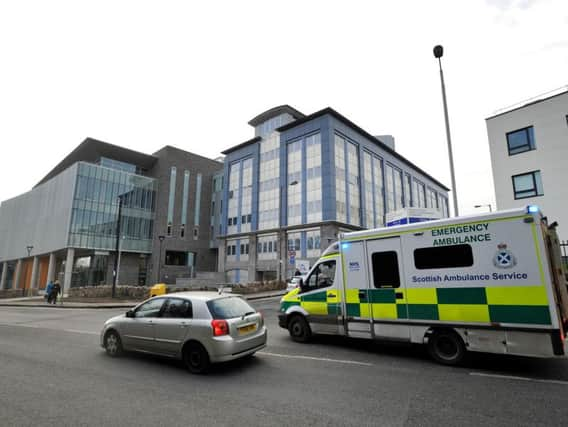Bed-blocking crisis hits Edinburgh's Western General critical care unit


Sixty per cent of patients in the hospital’s surgical high dependency unit (SHDU) had to wait more than four hours for a bed elsewhere in the hospital once they were ready to be transferred. That compares with the national average of 46 per cent.
The annual report by the Scottish Intensive Care Society Audit Group said in most cases the root problem was so-called bed-blocking in other parts of the hospital, often because patients could not be discharged due to the required social care not being available.
Advertisement
Hide AdAdvertisement
Hide AdLothian MSP and Tory health spokesman Miles Briggs said: “Delayed discharge at the critical care unit in the Western General Hospital remains the highest in Scotland, for a second consecutive year.
“It is vital that NHS Lothian seriously consider the business case for expanding the critical care unit at the Western General SHDU for patients safety and to reduce rates of delayed discharge.
“The SNP’s mismanagement of our health service means that patients are staying in inappropriate settings far more often, which is bad for them and frustrating for their families.”
The audit report showed the most common reasons for admission to a general intensive care unit in Scotland during 2018 were sepsis, post cardiac arrest and respiratory infection.
Advertisement
Hide AdAdvertisement
Hide AdIt said: “There are challenges, particularly around delayed discharge from critical care and discharges taking place out of hours.
“There is also increasing evidence that some areas of Scotland still have inadequate critical care capacity.”
The report said the most common reason for delayed discharge from critical care - when patients are deemed clinically ready to be transferred but there is a gap before they move - is a shortage of available ward beds.
“This in turn can be due to delayed discharge of patients from acute hospital beds, often caused by lack of social care in the community. In times of peak demand, this effect can back up into critical care areas.”
Advertisement
Hide AdAdvertisement
Hide AdThe report said the Western General unit had “significantly higher” delayed discharges compared to the Scottish average, with 60 per cent being delayed by four hours or more.
It added: “This is a reflection of the capacity issues in the wards in this hospital.”
Dr Tracey Gillies, medical director at NHS Lothian, said: “Unfortunately some patients may wait longer than expected to be discharged into a ward during busy periods.
“Very often these delays in critical care are caused when patients in other parts of the hospital are ready to be discharged but have to wait for support to be ready at home.
Advertisement
Hide AdAdvertisement
Hide Ad“The issue of delayed discharge is a complicated challenge for NHS Lothian, our Integration Joint Boards and council colleagues.
“ We continue to work closely with our four health and social care partners to tackle delays, including optimising home care and care home availability.”